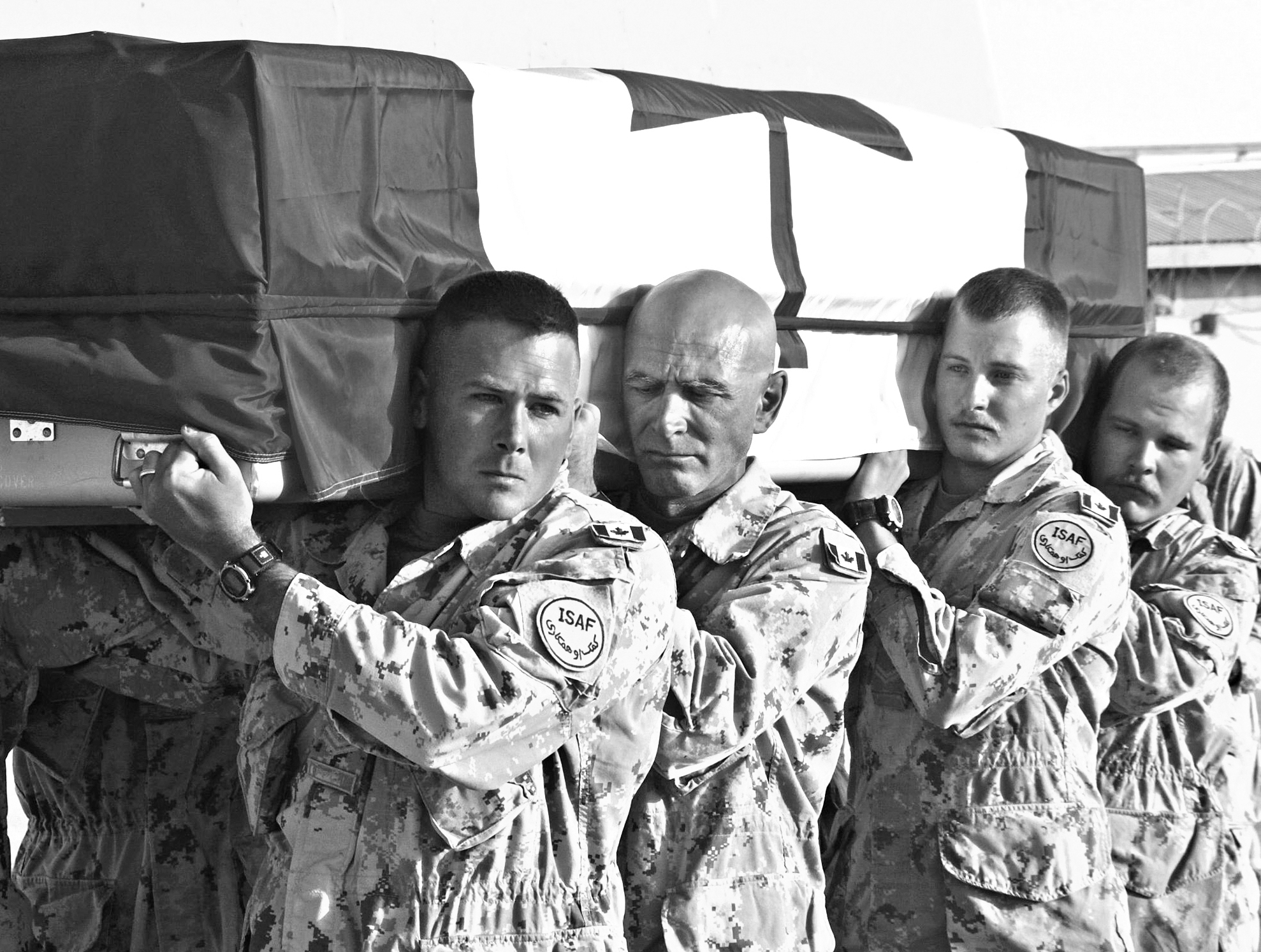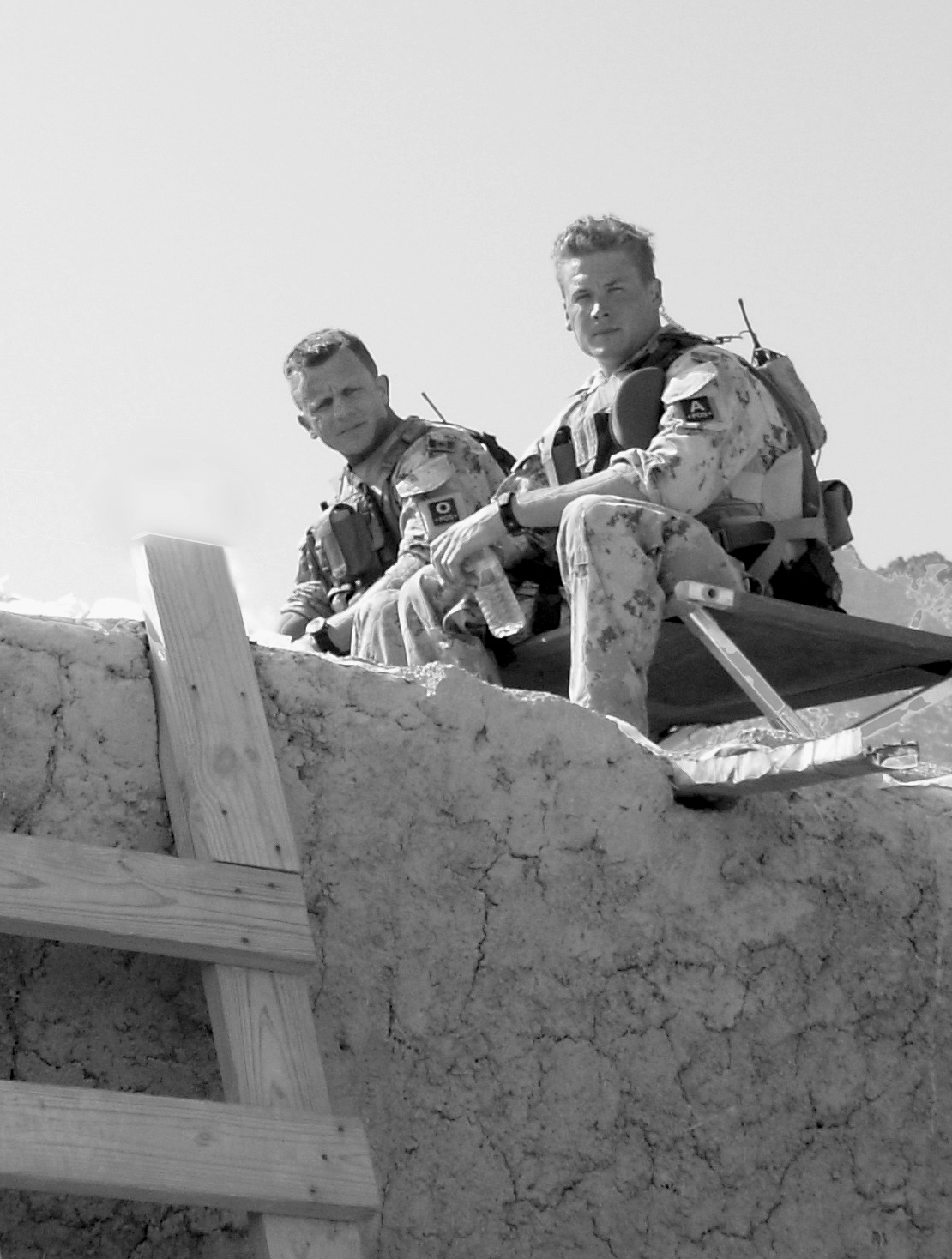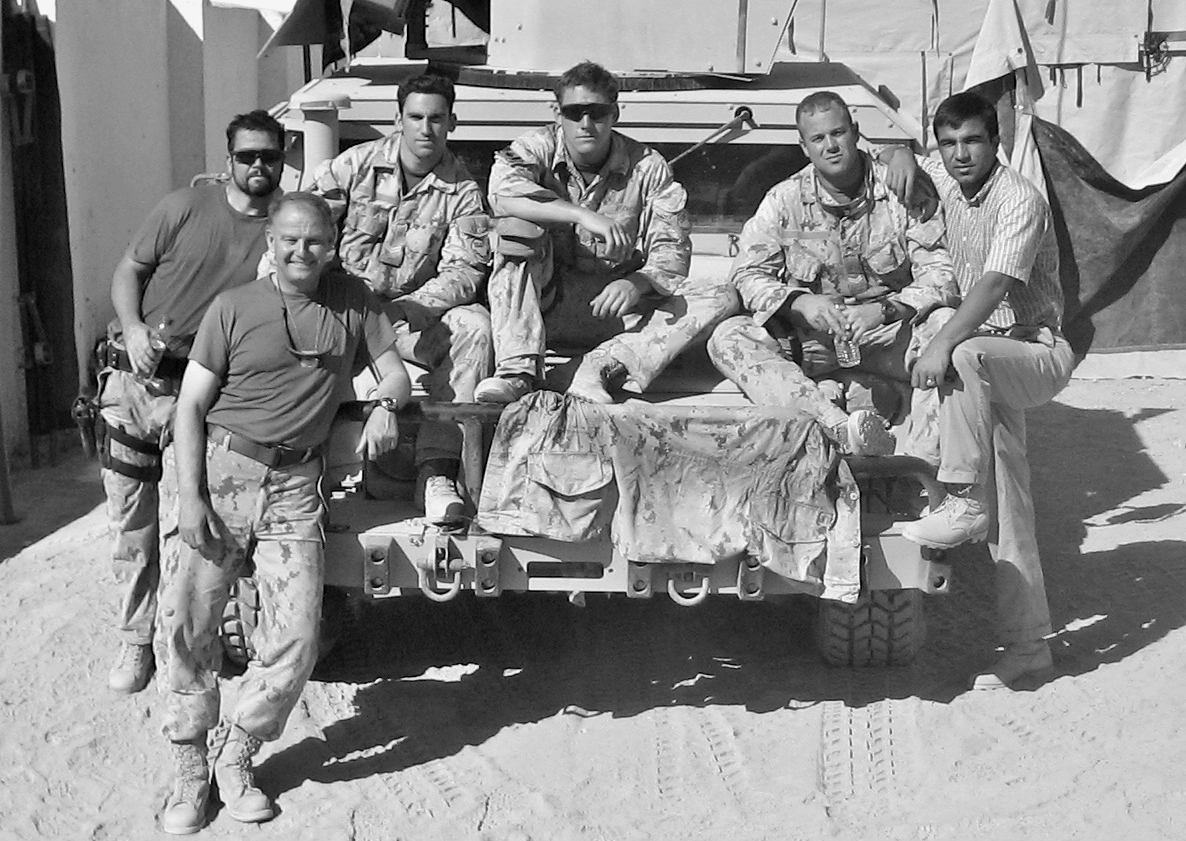EPILOGUE
WEEP
One aspect of the mission that none of us welcomed yet had to accept was that there were going to be casualties. The horrible truth of any conflict is that operations will put men and women at risk. There is no way that risk can be taken down to zero. It can be mitigated through many means but, inevitably, operations such as the one we undertook together in Afghanistan will result in losses.
In anticipation of this cold reality, we spent considerable time with our command teams and soldiers learning how to respond when deaths and injuries occur. We did as much as we could to get ready for those tragic events. We met with experts including Dave Grossman, author of On Killing. We refined procedures to manage these scenarios and rehearsed them repeatedly.
As part of our preparations, we considered how we would approach breaking sad news, both in theatre and to families at home. I directed that bad news would be given by me, an unpleasant duty but nothing compared to the anguish suffered by a loved one. During our tour, whenever soldiers perished I wrote and sent letters of condolence to their families. At our base on Kandahar Airfield we gathered for solemn services to honour fallen comrades as the flags of their nations flew above us. And as we readied each soldier for his or her final flight home to Canada, we made our farewells at ramp ceremonies, each time a sober reminder of the seriousness of our mission and the importance of doing everything in our power to mitigate risk.

Ramp ceremonies were emotional events that happened far too often. Whenever a soldier was killed, we held a ramp ceremony at Kandahar Airfield, attended by all available soldiers. The purpose was to pay our respects to a fallen comrade. Every nation’s men and women would attend, without exception. These were big events involving hundreds—if not a thousand—soldiers, and they constantly got bigger throughout our tour. The security aspect was always a concern, and we mitigated the potential for a rocket attack by varying the time they took place. Each ramp ceremony was conducted in a similar fashion. An aircraft would be positioned to receive the remains, and soldiers from every contingent would line up on either side right up to the aircraft. Comrades from the unit which had lost the soldier or soldiers would position themselves to the right of the aircraft, with the senior commanders of RC South across from them. The coffins would be paraded up between the ranks, carried by fellow soldiers. The padre would be at the front and say a few prayers before the remains were taken on board the aircraft. A few minutes were set aside for fellow soldiers to go onto the aircraft to say their farewells. “Amazing Grace” was played at every ceremony that I recall. Today, when I hear “Amazing Grace,” I remember those ramp ceremonies. I recall that I attended a ramp ceremony the week I arrived in Afghanistan, and I attended a ramp ceremony the week I left. There is not a day that goes by that I do not think of all the soldiers who were killed during our tour. I wrote to every family of our fallen heroes. We sent a flag from the nation of the soldier to the family as a tribute to the hero. These ceremonies were conducted with the utmost respect, and there was a pouring out of emotions and support from every nation. Every soldier touched the lives of everyone.Credit 42

Randy Payne and Matt Dinning hung around together and they were part of the family. Both were good-humoured and were consummate professionals. They quietly went about their jobs and allowed me to do mine. I was never concerned about my safety with these fine police officers around me. Their loss was gut-wrenching and there is not a day that I do not think about them. We celebrated the tenth anniversary of their death at the Military Police School in Borden. For the first time since Afghanistan, most of the Posse gathered. I spoke in front of the Police Academy staff and students, and highlighted the leadership and professionalism that these two fine soldiers exhibited. They were the best that the academy produced and exemplified what it means to be Military Police.Credit 43
Having written to the family of every service member killed, as the tour was ending I felt a growing responsibility to visit, or at least offer to visit, each family in turn once we arrived back in Canada. Our brigade sergeant major Mike MacDonald, my executive assistant David Buchanan and I agreed we had an obligation to pay our personal respects to each family and answer any questions they had regarding their loved one. During those visits we would be able to ask if everything that could be done was being done for them.
About half the families accepted our request to visit. After the tour the three of us set out as a team. With details of each incident in hand we offered to answer candidly any questions they might have. These were all difficult visits, yet we were amazed by the common courage and resilience of the families of the fallen. Never have we been so proud as we were to be in the presence of those people we met across Canada, including the families of the four comrades we lost from the Posse. We also heard stories of the magnificent performance of the home units that supported families of deployed soldiers in time of great distress.
On those visits we learned that some widows were in danger of losing their homes. While they had paid for mortgage insurance assuming it would cover them for that unthinkable day, they were about to lose everything because of a war-exclusion clause inserted into the fine print of their policies. We were aghast.
On one of our stops in Toronto, I asked to see anyone in the banking or insurance industry who was ready to listen to a sad story. At the Royal Canadian Military Institute we met with half a dozen business leaders, including Blake Goldring, chairman and CEO of the investment management firm AGF. These executives too were aghast. We suggested that this unfair exclusion was not the deliberate act of any underwriter, but likely just the blanket application of an overly general provision. They asked us for the names of the affected families. In the following days we double-checked and identified even more families adversely affected by this regulation. Blake and his colleagues took it upon themselves to do the right thing. The families affected did not lose their homes and, a couple of years later, the unfair war-exclusion clause was changed; it no longer applies to personnel of either the Canadian Armed Forces or the RCMP. As such, our visits were a series of sad events that generated a few happy results.
Paying respects to the families of the fallen is one of the hardest things a commander must do. Words never come easily, for what can one really say to a family who has lost someone to the violence of war? A mere visit will never lessen the pain, but we did learn that just knowing more about what their loved one did and what difference they had made can give a measure of satisfaction that helps in some small way.
The years have ticked by since those visits, and there continue to be occasions on which my colleagues and I are able to visit again with the family members of our fallen comrades. I cherish those moments, for when we do meet, we have one more opportunity to celebrate the contributions of those who made the ultimate sacrifice.
To all of them, we dedicate this story.

This is a shot of the members of the Posse who went to Mizan, a district dominated by the Taliban in the northwest corner of Zabul Province. Into that heart of insurgent influence we injected an American platoon of some sixty soldiers, augmented by a Romanian mortar section. In my daily operational updates, I heard how disruptive this group of soldiers were being to the Taliban, and what positive progress they were making with the local Afghan authorities. They had taken to their task with fervour. We decided to fly up for a couple of days to see for ourselves what effects they were producing. Commanded by a young American lieutenant, the platoon in Mizan was executing an impressive, balanced reinforcement of the Governor of Zabul’s intent. Their effect was so strong that, in retaliation, the Taliban were attacking their outpost every night. When we first arrived in Mizan we met with the mayor. With him was the chief of police, a colourful character known by all as Crazybones, who lived on the wild side, with a meaty SPG-9 Russian recoilless anti-tank rifle as his personal sidearm. The day was productive. Our patrol into town went without incident, but for the fatal shooting of one person over some tribal disagreement. That night we were awoken by a barrage of incoming small-arms and machine-gun fire, as well as RPGS and other munitions. Everyone scrambled to their assigned positions for one of the most intensive firefights we had throughout the tour. The American lieutenant calmly handled the situation, including reporting back to headquarters and the coordination of fast air, which was then dispatched to the scene. The Romanians fully engaged with their 82mm mortar, as did the Americans. Quite the night. Here, photographed in the calm of the next morning, are (left to right) Tucker, Boss, Dooner, Project Bryant, Seegy and Bomber (who took the photo). Just another typical day in RC South.Credit 44